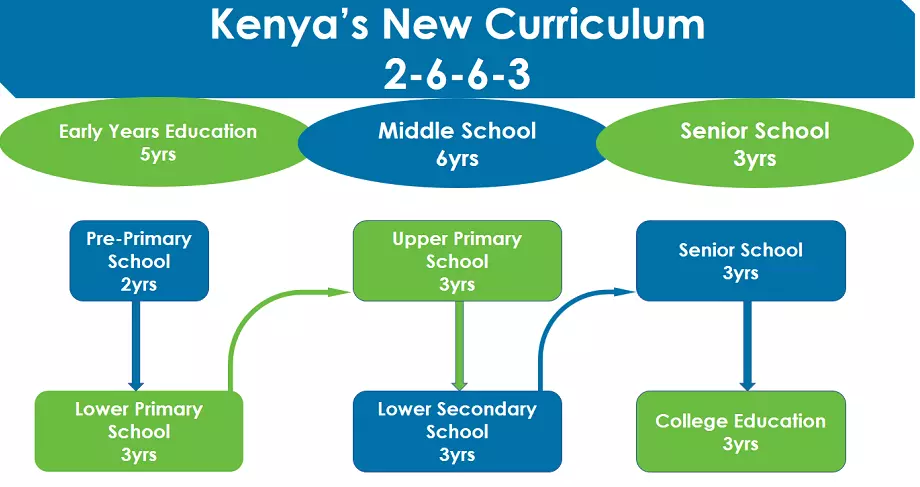Kenya's CBC Competencies and Transition Challenges

The Competency-Based Curriculum (CBC) in Kenya focuses on developing specific competencies in students, rather than just imparting knowledge. The competencies are designed to help students develop the skills and abilities they need to be successful in their future careers and in life.
Some of the key competencies of the CBC in Kenya include:
-
Critical thinking and problem-solving: The CBC aims to develop students' ability to think critically and to solve problems, both individually and as part of a team.
-
Communication and collaboration: The curriculum emphasizes the development of effective communication skills and the ability to work effectively with others.
-
Digital literacy: In an increasingly digital world, the CBC recognizes the importance of digital literacy and seeks to develop students' skills and knowledge in using technology.
-
Imagination and Creativity: The CBC seeks to encourage students to think creatively and to develop their entrepreneurial skills and abilities.
-
Ethical and moral reasoning: The curriculum places a strong emphasis on the development of ethical and moral reasoning skills, to help students make informed decisions and act responsibly.
-
Environmental and social awareness: The CBC recognizes the importance of environmental sustainability and social justice and seeks to develop students' understanding and awareness of these issues.
-
Citizenship: The curriculum seeks to develop students' leadership skills and to encourage them to take an active role in their communities.
These competencies are integrated into the CBC across all subject areas, and students are assessed based on their demonstration of these competencies, rather than just on their knowledge of specific subjects. The CBC aims to prepare students for the challenges and opportunities of the 21st century and to help them become responsible, ethical, and innovative citizens.
CBC Transition Challenges
Kenya's transition from the 8-4-4 curriculum to the Competency-Based Curriculum (CBC) is likely to present several challenges that the country will need to address. Some of these challenges include:
-
Teacher training and professional development: Teachers will need to be trained in the new curriculum and pedagogical approaches, as well as how to assess student learning using the competency-based approach. This will require significant investment in teacher training and professional development.
-
Infrastructure and resources: Implementing the CBC will require adequate infrastructure and resources, including well-equipped classrooms, instructional materials, and technology. Kenya will need to ensure that these resources are available and accessible to all schools.
-
Assessment and evaluation: The CBC focuses on student competencies, and therefore, new assessment and evaluation approaches will be needed to effectively measure student learning. Kenya will need to develop and implement new forms of assessment that are aligned with the competency-based approach.
-
Parent and community engagement: The transition to the CBC will require the active engagement of parents and the wider community. This will involve educating them on the new curriculum and the benefits it brings, as well as encouraging their involvement in supporting the transition.
-
Implementation support: Effective implementation of the CBC will require strong leadership and support at all levels of the education system. This will include providing guidance and resources for schools, as well as ensuring that the CBC is integrated into teacher preparation programs and teacher professional development.
In conclusion, Kenya will need to address these challenges in order to ensure a smooth and successful transition to the Competency-Based Curriculum. By investing in teacher training, infrastructure, assessment and evaluation, parent and community engagement, and implementation support, Kenya can ensure that the transition results in a high-quality education system that prepares students for the future.
